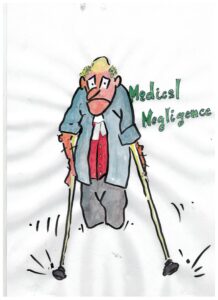Why is Home Building insurance important?
- 2014-05-15
- By whiggs
- Posted in Home Building Law
The Home Building Act 1989 provides that a person must not do residential building work unless certain insurance is obtained to protect the owner (not the builder) against the risk of loss resulting from non-completion or the risk of being unable to recover compensation for a breach of a statutory warranty or have the contractor rectify such a breach.
The statutory warranties are set out in Part 2C of the Home Building Act, which provides:
18B Warranties as to residential building work
The following warranties by the holder of a licence, or a person required to hold a licence before entering into a contract, are implied in every contract to do residential building work:
(a) a warranty that the work will be performed in a proper and workmanlike manner and in accordance with the plans and specifications set out in the contract,
(b) a warranty that all materials supplied by the holder or person will be good and suitable for the purpose for which they are used and that, unless otherwise stated in the contract, those materials will be new,
(c) a warranty that the work will be done in accordance with, and will comply with, this or any other law,
(d) a warranty that the work will be done with due diligence and within the time stipulated in the contract, or if no time is stipulated, within a reasonable time,
(e) a warranty that, if the work consists of the construction of a dwelling, the making of alterations or additions to a dwelling or the repairing, renovation, decoration or protective treatment of a dwelling, the work will result, to the extent of the work conducted, in a dwelling that is reasonably fit for occupation as a dwelling,
(f) a warranty that the work and any materials used in doing the work will be reasonably fit for the specified purpose or result, if the person for whom the work is done expressly makes known to the holder of the licence or person required to hold a licence, or another person with express or apparent authority to enter into or vary contractual arrangements on behalf of the holder or person, the particular purpose for which the work is required or the result that the owner desires the work to achieve, so as to show that the owner relies on the holder’s or person’s skill and judgment.
18C Warranties as to work by others
A person who is the immediate successor in title to an owner-builder, a holder of a licence, a former holder or a developer who has done residential building work on land is entitled to the benefit of the statutory warranties as if the owner-builder, holder, former holder or developer were required to hold a licence and had done the work under a contract with that successor in title to do the work.
18D Extension of statutory warranties
A person who is a successor in title to a person entitled to the benefit of a statutory warranty under this Act is entitled to the same rights as the person’s predecessor in title in respect of the statutory warranty, except for work and materials in respect of which the person’s predecessor has enforced the warranty.
18E Duration of warranties
Proceedings for a breach of a statutory warranty must be commenced within 7 years after:
(a) the completion of the work to which it relates, or
(b) if the work is not completed:
(i) the date for completion of the work specified or determined in accordance with the contract, or
(ii) if there is no such date, the date of the contract.
18F Defence
In proceedings for a breach of a statutory warranty, it is a defence for the defendant to prove that the deficiencies of which the plaintiff complains arise from instructions given by the person for whom the work was done contrary to the advice in writing of the defendant or person who did the work.
18G Warranties may not be excluded
A provision of an agreement or other instrument that purports to restrict or remove the rights of a person in respect of any statutory warranty is void.
The scheme of insurance is contained in Part 6 of the Home Building Act 1989. In the Second Reading Speech given in relation to Part 6, the Minister for Fair Trading referred to the introduction of private home building insurance, in contrast to the government-operated system that was previously in place, as a fundamental reform that would benefit consumers. The Minister said (Hansard, Legislative Assembly, 30 October 1996, 5540 at 5541):
The system we have had in New South Wales has lacked the incentives to encourage competent and efficient contractors and has treated all licence holders in the same way. There have been no rewards for the good builder, nor any incentives for others to lift their game. The same insurance premium is charged, irrespective of the risks which different builders pose or the quality of work they provide. Good builders have not been rewarded by lower premiums. Until recently all builders and contractors had gold licences. That raised the expectations of consumers and created a false sense of security. It was only after a problem arose that many consumers learnt, to their surprise, that there were no silver or bronze licences. As one consumer remarked to me, “If this is the work of a gold licence holder, God help the others.”
Privately run insurance has the potential and the means to change all of this. Bad builders will be able to be excluded. They will not get insurance and therefore will not work in the residential building industry. Good builders will be rewarded with lower premiums. Private sector insurers will be able to manage the risks far better than a government scheme. The Government will, however, continue to play a key role by setting the minimum conditions of the insurance scheme and by closely monitoring its operation. The conditions set by the Government for the private scheme will also give New South Wales home owners significantly improved cover compared to those which operated in the past…
[added emphasis]
The following provisions of the Home Building Act 1989 (NSW) in Part 6 are relevant.
92 Contract work must be insured
(1) A person must not do residential building work under a contract unless:
(a) a contract of insurance that complies with this Act is in force in relation to that work in the name of the person who contracted to do the work, and
(b) a certificate of insurance evidencing the contract of insurance, in a form prescribed by the regulations, has been provided to the other party (or one of the other parties) to the contract.
Maximum penalty: 200 penalty units.
(2) Except as provided by section 94 (1A), a person must not demand or receive a payment under a contract for residential building work (whether as a deposit or other payment and whether or not work under the contract has commenced) from any other party to the contract unless:
(a) a contract of insurance that complies with this Act is in force in relation to that work in the name of the person who contracted to do the work, and
(b) a certificate of insurance evidencing the contract of insurance, in a form prescribed by the regulations, has been provided to the other party (or one of the other parties) to the contract.
Maximum penalty: 200 penalty units.
(3) This section does not apply if the contract price does not exceed $5,000 or (if the contract price is not known) the reasonable market cost of the labour and materials involved does not exceed $5,000.
(4) If the same parties enter into two or more contracts to carry out work in stages, the contract price for the purposes of subsection (3) is taken to be the sum of the contract prices under
each of the contracts.
(5) The regulations may prescribe another amount for the purposes of subsection (3) and an amount so prescribed is to apply in the place of the amount referred to in that subsection.
(6) To avoid doubt, this section extends to residential building work that is also owner-builder work.
99 Requirements for insurance for residential building work
(1) A contract of insurance in relation to residential building work required by section 92 must insure:
(a) a person on whose behalf the work is being done against the risk of loss resulting from non-completion of the work because of the insolvency, death or disappearance of the contractor, and
(b) a person on whose behalf the work is being done and the person’s successors in title against the risk of being unable, because of the insolvency, death or disappearance of the contractor:
(i) to recover compensation from the contractor for a breach of a statutory warranty in respect of the work, or
(ii) to have the contractor rectify any such breach.
(2) Subsection (1) does not require the following to be insured:
(a) a developer on whose behalf residential building work is being done,
(b) any other person belonging to a class of persons prescribed by the regulations for the purposes of this section.
102 General requirements for insurance
(1) This section applies to all contracts of insurance required to be entered into by or under this Part.
(2) The insurance must be of a kind approved by the Minister and be provided by an insurer approved by the Minister.
(3) The contract of insurance must provide for cover of not less than $200,000 in relation to each dwelling to which the insurance relates, or such other amount as may be prescribed by the regulations.
(4) Any limitations on liability under the contract of insurance must comply with any requirements of the regulations.
(5) The contract of insurance must comply with any other requirements of the regulations.
(6) A contract of insurance may provide that the insurer is not liable for such amount (not exceeding $500) of each claim as is specified in the contract.
(7) The regulations may make provision for or with respect to requiring the retention, at a place prescribed by the regulations, of copies of contracts of insurance required to be entered into by or under this Part.
In Tudor Developments Pty Ltd v Makeig [2008] NSWCA 263, Basten JA (with whom Beazley JA agreed) at [17] affirmed that the purpose of section 92 was “to ensure that purchasers of residential properties enjoy a degree of protection against inadequate construction work in cases where the developer is insolvent or no longer in the business when defects become apparent and is therefore not able to undertake rectification work or compensate the owner for the loss incurred as a result of the defective building work”.
In Vero Insurance v The Owners of Strata Plan 69352 [2011] NSWCA 138; (2011) 81 NSWLR 227, the Court was concerned with insurance policies issued in respect of 201 units and a claim by the owners corporation regarding defective building work to common property. Sackville AJA (Allsop P and Basten JA agreeing) held at 241-242 that:
The statutory scheme, in my view, clearly contemplates that an owners corporation in a residential strata scheme is entitled, in its own right, to make a claim on the statutory home insurance policy in respect of the risks identified in s 99(1) of the HB Act. In particular, the scheme contemplates that an owners corporation will be entitled to make a claim in respect of loss arising from the breach of a statutory warranty in respect of defective work on the common property. The owners corporation’s entitlement flows both from s 227(2) of the SSM Act and, more simply, from its status as the registered proprietor of the common property and as the successor in title to the person on whose behalf the residential building work was carried out.
…
The effect of s 99(1)(b) of the HB Act is that the contract of insurance issued by the Insurer had to insure the Owners Corporation, as Meriton’s successor in title to the common property, against the specified risks. The statutory requirement was not conditional upon the Insurer issuing a certificate of insurance to the Owners Corporation. Nor was it in any way dependent on the terms of any certificate issued by the Insurer in respect of lots in the strata scheme.
SEARCH BLOG POSTS
LATEST BLOG POSTS
- Updated product safety mandatory reporting guidance for suppliers now available
- Pleading fraud – cause and effect is essential
- Does the Trustee’s right of indemnity have priority over the right of beneficiaries in relation to assets?
- Rules of war (in a nutshell) | The Laws Of War
- MH370 Final Report
Past Blog Posts
- December 2021
- September 2021
- August 2021
- May 2021
- April 2021
- March 2021
- August 2020
- February 2020
- September 2019
- February 2019
- December 2018
- July 2018
- April 2018
- December 2017
- May 2017
- February 2017
- December 2016
- November 2016
- October 2016
- September 2016
- August 2016
- April 2016
- March 2016
- October 2015
- September 2015
- August 2015
- May 2014
- April 2014
- March 2014
- January 2014
Categories
- Appeals
- Artificial Intelligence
- Aviation law
- Banking and Finance Law
- Blogs
- Civil Liability Act
- Class Actions
- Coding for lawyers
- common law
- Consumer Claims (TPA)
- Contract Law
- Contractual Interpretation
- Criminal law
- Deeds
- Docassemble
- duty of care
- Engineering Law
- Equity
- Evidence
- Exclusion Clauses
- Execution of documents
- Expert Witness
- featured
- Financial Services
- Fraud
- Fundraising (Chapter 6D)
- General comment
- Home Building Law
- Insurance
- Legal drafting
- Local Court
- Medical Negligence
- MH370
- Motor Accidents
- Negligence
- Occupiers negligence
- Other
- Personal Injury
- Personal Property Securities (PPSA)
- Pleading
- Practice & Procedure
- Products Liability
- Property
- Real Property
- Reasons for a decision
- Securitisation
- Security (Mortgages & Charges)
- Sentencing
- Swaps & Derivatives
- Teaching
- Transactional Law
- Transfer of financial assets in transactions
- Trusts & Trustee Law
- Uncategorized
- War and Weaponry
- Witnesses
SEARCH BLOG POSTS
LATEST BLOG POSTS
- Updated product safety mandatory reporting guidance for suppliers now available
- Pleading fraud – cause and effect is essential
- Does the Trustee’s right of indemnity have priority over the right of beneficiaries in relation to assets?
- Rules of war (in a nutshell) | The Laws Of War
- MH370 Final Report
Past Blog Posts
- December 2021
- September 2021
- August 2021
- May 2021
- April 2021
- March 2021
- August 2020
- February 2020
- September 2019
- February 2019
- December 2018
- July 2018
- April 2018
- December 2017
- May 2017
- February 2017
- December 2016
- November 2016
- October 2016
- September 2016
- August 2016
- April 2016
- March 2016
- October 2015
- September 2015
- August 2015
- May 2014
- April 2014
- March 2014
- January 2014
Categories
- Appeals
- Artificial Intelligence
- Aviation law
- Banking and Finance Law
- Blogs
- Civil Liability Act
- Class Actions
- Coding for lawyers
- common law
- Consumer Claims (TPA)
- Contract Law
- Contractual Interpretation
- Criminal law
- Deeds
- Docassemble
- duty of care
- Engineering Law
- Equity
- Evidence
- Exclusion Clauses
- Execution of documents
- Expert Witness
- featured
- Financial Services
- Fraud
- Fundraising (Chapter 6D)
- General comment
- Home Building Law
- Insurance
- Legal drafting
- Local Court
- Medical Negligence
- MH370
- Motor Accidents
- Negligence
- Occupiers negligence
- Other
- Personal Injury
- Personal Property Securities (PPSA)
- Pleading
- Practice & Procedure
- Products Liability
- Property
- Real Property
- Reasons for a decision
- Securitisation
- Security (Mortgages & Charges)
- Sentencing
- Swaps & Derivatives
- Teaching
- Transactional Law
- Transfer of financial assets in transactions
- Trusts & Trustee Law
- Uncategorized
- War and Weaponry
- Witnesses




